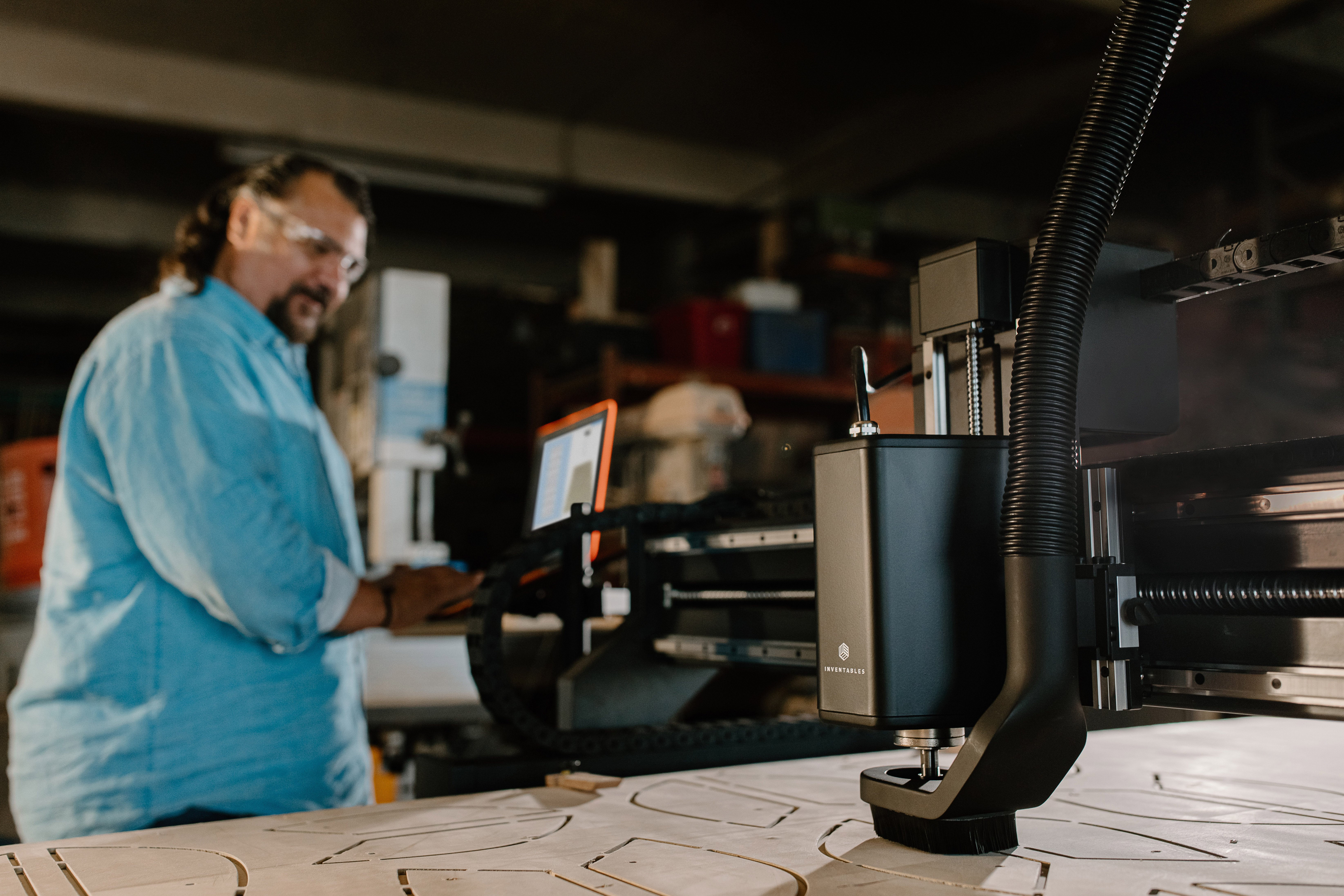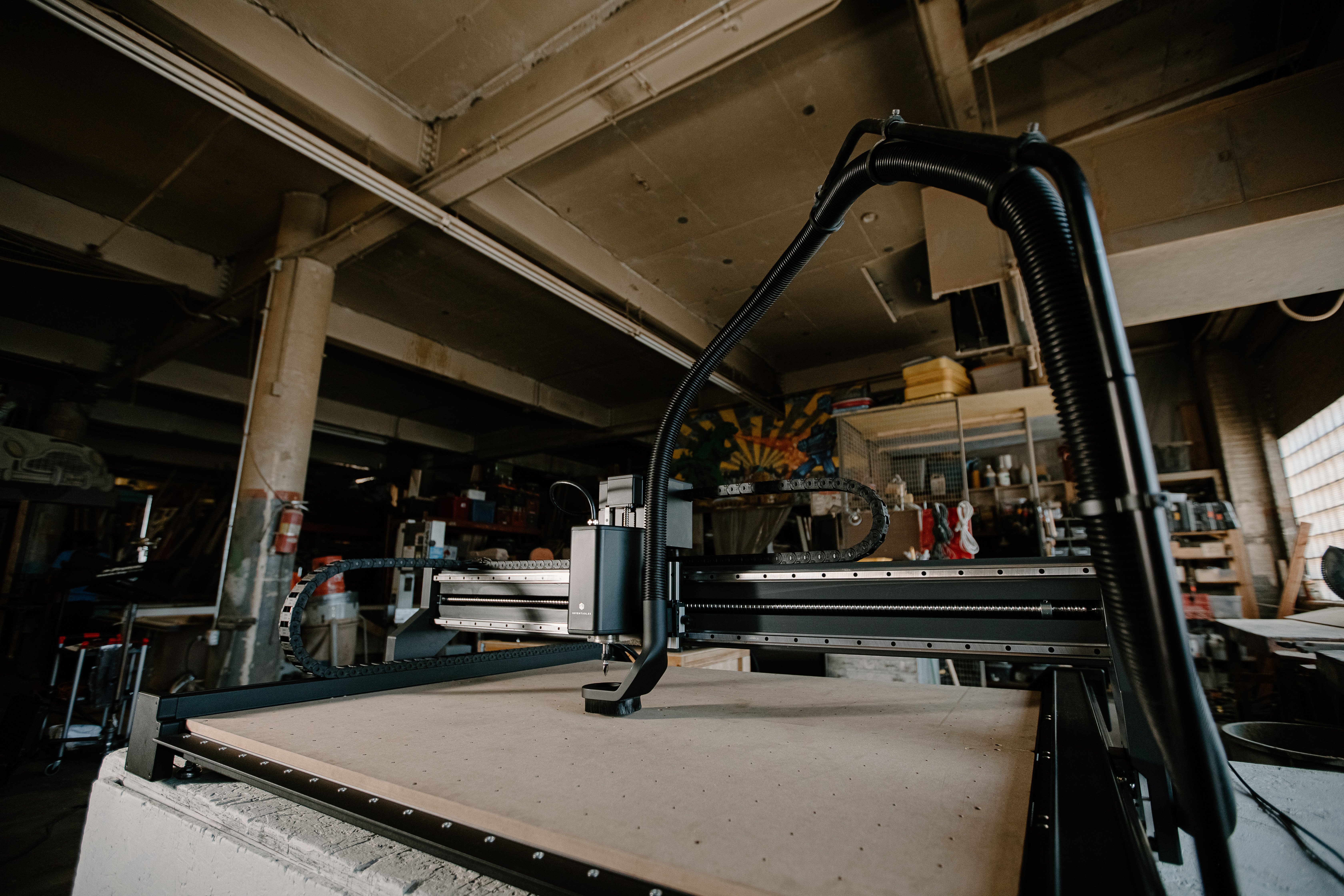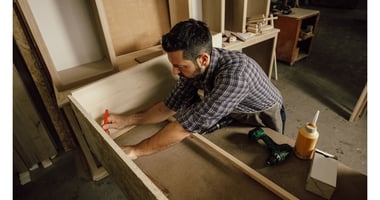As a residential cabinetmaker, your work is both beautiful and functional, so it's important to...
CNC vs. Conventional Machining
What is Conventional Machining?
There's a long history of woodworkers and craftsmen who turn raw materials into furniture, cabinets, built-ins, and so much more. In conventional machining, your equipment may consist of lathes, milles, and other tools. Adding a CNC machine into the mix allows you to fabricate products more quickly, using automated machines with sophisticated programming capabilities.
What is CNC Machining?
CNC machining technology has many of the same characteristics of conventional machining - the most important being the craftsmen who take pride in producing high-quality products. But CNC machines have a distinct advantage: they make the process of designing, cutting, and building products more sophisticated and easy to carry out.
__.jpg?width=6720&height=4480&name=Copy%20of%20XCP_Lifestyle_4x4_ManwHatOnComputerSmiling_9M5A4414r2%20(2)__.jpg)
Is There Really a Difference Between the Two?
Short answer: yes. Let's dive into the specific differences so you can decide for yourself.
With CNC machines, here are the top 4 advantages over traditional machines:
- Accuracy. You can achieve a higher level of accuracy. Additionally, using CNC technology allows you to fabricate more products and products without sacrificing precision. With traditional machines, you have to deal with human error.
- Productivity. You can see your CNC machine as another employee (who doesn't need a lunch break). CNC machines can operate all day, every day. They're highly durable, which means that your business's productivity will skyrocket. With conventional machines, you can streamline your processes. But that's no match for the speed and efficiency of CNC.
- Labor. Even if you're a one-person shop, you can appreciate the labor savings available when you invest in CNC technology. If you have 1 or more employees, you'll see a significant reduction in the amount of work required to produce each product and part. And since CNC machines can handle much of the work you must perform manually on traditional machines, you'll drastically improve your shop safety record and reduce your labor expenses.
- Safety. Depending on the laws in your state, you must maintain workers' compensation insurance once you reach a certain number of employees. Since CNC machines require less maintenance and enhanced safety features, you'll see fewer workplace injuries. Fewer injuries = you'll find it easier to attract qualified machinists.

Pros and Cons
Pros of Conventional Machining:
- Simple
- Affordable
- Maintains skills
Cons of Conventional Machining
- Limited capacity
- Prone to errors, which means money wasted
- Greater risk of injury
- Higher labor costs
Pros of CNC
- Affordable (depending on the brand)
- Easy to use (depending on the brand)
- Speed
- Accuracy
- Precision
- Productivity
- Durable components (fixtures and tools)
- Lower labor costs
Cons of CNC
- Can require complex programming (depending on the brand)
So which is better: CNC or Traditional?
There are advantages and disadvantages to both. Ultimately, it comes down to personal choice. Which one would work best in your shop? Are you trying to scale your business and ramp up production? If so, then it might make sense to purchase a CNC tool that's relatively easy to learn.
The X-Carve Pro is an affordable machine that provides shop owners with all of the advantages above. Feel free to contact us for guidance and advice on other CNC products that might benefit your shop.




